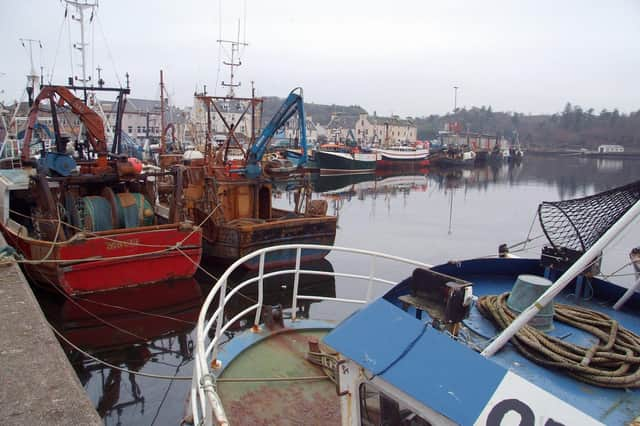Green pact points to ‘challenging times’


However, Mr MacInnes warned that “the dramatic decline in brown crab landings reflects the urgent need for some form of effort management in that fishery which has seen the catch per unit effort reduce sharply over recent years”.
He also foresaw “challenging times ahead for all sectors, particularly once the Cooperation Agreement reached between the SNP and Green Party is implemented”.
Advertisement
Hide AdAdvertisement
Hide AdOfficial figures for landings at all Scottish ports in 2020 showed a 42 per cent drop in the value of shellfish landings although pelagic landings increased by six per cent. In the Western Isles, figures extrapolated by Mr MacInnes showed:
- Brown crab showed the largest decrease in volume of landings at 47% with a 59% reduction in value of landings and a 25% reduction in price per tonne.
- Nephrops decreased in volume of landings by 13% with a 30% reduction in value of landings and a 16% reduction in price per tonne, higher fall in tails
- Lobster decreased in volume of landings by 11% with a 19% reduction in value of landings and a 10% reduction in price per tonne.
Advertisement
Hide AdAdvertisement
Hide Ad- Scallops decreased in volume of landings by 9% with a 27% reduction in value of landings and a 10% reduction in price per tonne.
- Velvet crab decreased in volume of landings by 19% with a 7% reduction in value of landings and a 14% reduction in price per tonne.
The overall reduction in the value of landings into the Western Isles in 2020 was down by 39% which was “significant” even taking account of some trawlers having been sold during the year.
Demersal species remained relatively constant with the exception of wrasse that saw landings apparently fall by almost two-thirds although some doubts existed about the previous year’s statistics.
Advertisement
Hide AdAdvertisement
Hide AdMr MacInnes said the figures clearly showed why there was an urgent need for an aid package for the shellfish sector in contrast to pelagic which had seen increases in value and volumes landed whilst some white fish species were struggling due to lack of sufficient labour in the processing sector..
On prospects in the immediate future, he said: “The Outer Hebrides Pot Limitation Pilot which was introduced in the Minches area from Loch Shell south to Barra Head offers the industry the opportunity of developing a locally managed approach and enforcement of pot fisheries in all inshore waters within 12 miles covered by the Outer Hebrides Regional Inshore Fisheries Group.
“Prices are increasing for most species although some have not reached pre-Covid levels. With fuel prices rising sharply and further pressure on marine space forcing the catching sector into reduced sea areas, it’s likely to be challenging times ahead, particularly once the Cooperation Agreement reached between the SNP and Green Party is implemented”.